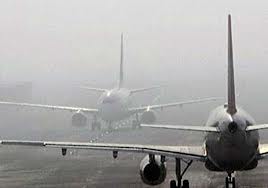New Delhi, June 21: The world is feeling the need for yoga more than ever due to the coronavirus pandemic and the ancient Indian practice is helping a large number of Covid-19 patients across the globe in defeating the disease, Prime Minister Narendra Modi said on Sunday.
The coronavirus specifically attacks the respiratory system and 'pranayama' or breathing exercise helps in strengthening the respiratory system the most, Modi said in his message on the sixth International Day of Yoga.
Modi said yoga has emerged as a force for unity and it does not discriminate as it goes beyond race, colour, gender, faith and nations.
"Yoga enhances our quest for a healthier planet. It has emerged as a force for unity and deepens the bonds of humanity. It does not discriminate. It goes beyond race, colour, gender, faith and nations. Anybody can embrace Yog," the prime minister said.
In his nearly 15-minute address early Sunday morning, Modi said that due to the coronavirus pandemic, the world is feeling the need for yoga more than ever.
"If our immunity is strong, it is of great help in defeating this disease. For boosting immunity, there are several methods in yoga, various 'asanas' are there. These asanas are such that they increase the strength of the body and also strengthen our metabolism," he said.
Talking about the benefits of 'pranayama' -- a form of breathing exercise, Modi said it is very effective and has countless variations like 'Sheetali, Kapalbhati and Bhrastika'.
"All these forms of yoga, help a lot in strengthening both our respiratory and immune system," he said, urging people to include 'pranayama' in their daily routine.
"A large number of Covid-19 patients all over the world are taking the benefits of all these techniques of yoga. The strength of yoga is helping them defeat this disease," Modi said.
Asserting that anybody can embrace yoga, the prime minister said that all that is needed is some part of one's time and an empty space.
"Yoga is giving us not only the physical strength, but also mental balance and emotional stability to confidently negotiate the challenges before us," Modi said.
"If we can fine-tune our chords of health and hope, the day is not far away when world will witness the success of a healthy and happy humanity. Yoga can definitely help us make this happen," he said.
With the shadow of the COVID-19 pandemic looming large, International Day of Yoga is being marked on digital media platforms sans mass gatherings. This year's theme is 'Yoga at Home and Yoga with Family'.
Yoga Day is going digital for the first time since June 21, 2015, when it began to be celebrated annually across the world, coinciding with the Summer Solstice each year.
On December 11, 2014, the United Nations General Assembly declared June 21 as 'International Day of Yoga', months after Prime Minister Modi had proposed the idea.
The Ministry of Ayurveda, Yoga & Naturopathy, Unani, Siddha and Homoeopathy (AYUSH) had planned to hold a grand event in Leh, but cancelled it due to the pandemic.
In his message on Sunday, Modi said the International Yoga Day is a day of unity and gives the message of universal brotherhood.
"It is a day of oneness and humanness. What brings us together, unites us, that is yoga. What bridges distances is yoga. In times of this coronavirus pandemic, people's participation in the 'My Life - My Yoga' across the world shows that people's interest in yoga is increasing," he said.
He said that doing work properly and fulfilling one's duties is also a form of yoga.
"Eating the right food, playing the right sports, having right habits of sleeping and waking, and doing your work and your duties is yoga," Modi said.
"With this 'karmayoga', we get the solution to all the problems. 'Karmayoga' is also helping others selflessly. This spirit of 'karmayoga' is embedded in the spirit of India. Whenever the need arose, the whole world witnessed India's selflessness," he said.
The power as an individual, society and country increases manifold when people act according to yoga and with the spirit of 'karmayoga', Modi said.
"Today we have to take a pledge in this spirit -- we will do everything possible for our health, for the health of our loved ones. As a conscious citizen, we will move forward unitedly as a family and society," he said.
The PM's message was followed by a live demonstration of Common Yoga Protocol (CYP). The CYP drill was designed keeping in mind people of different age groups and of varied walks of life, the ministry had said in its statement.
Yoga programmes are organised across the globe by Indian missions every year, but this year will be different. Several missions are organising digital events to mark the occasion.







Comments
Add new comment